Founding Fathers Quotes on Excessive, Cruel or Unusual Punishment in the Eighth Amendment
You're free to republish or share any of our articles (either in part or in full), which are licensed under a Creative Commons Attribution 4.0 International License. Our only requirement is that you give Ammo.com appropriate credit by linking to the original article. Spread the word; knowledge is power!
“Excessive bail shall not be required, nor excessive fines imposed, nor cruel and unusual punishments inflicted.”
Americans argue today about whether or not capital punishment is, in and of itself, cruel and unusual. The Founders would not have recognized it as so. In fact, “cruel and unusual” punishments to them referenced the torturous and disfiguring punishments which were going out of fashion even in their day, but were not too distance of a memory – things like branding, for example.
This Amendment also ensures that you receive reasonable bail and are not fined excessively. Like many other clauses in the Constitution, these are somewhat vague and subjective terms. It’s only through over 200 years of American jurisprudence that we have a firmer idea of what these mean, developed through trial and error, tradition and precedent. Indeed, this Amendment might be the one most subject to the fashions of the times. What is considered “cruel and unusual” in one era might be considered eminently reasonable in another.
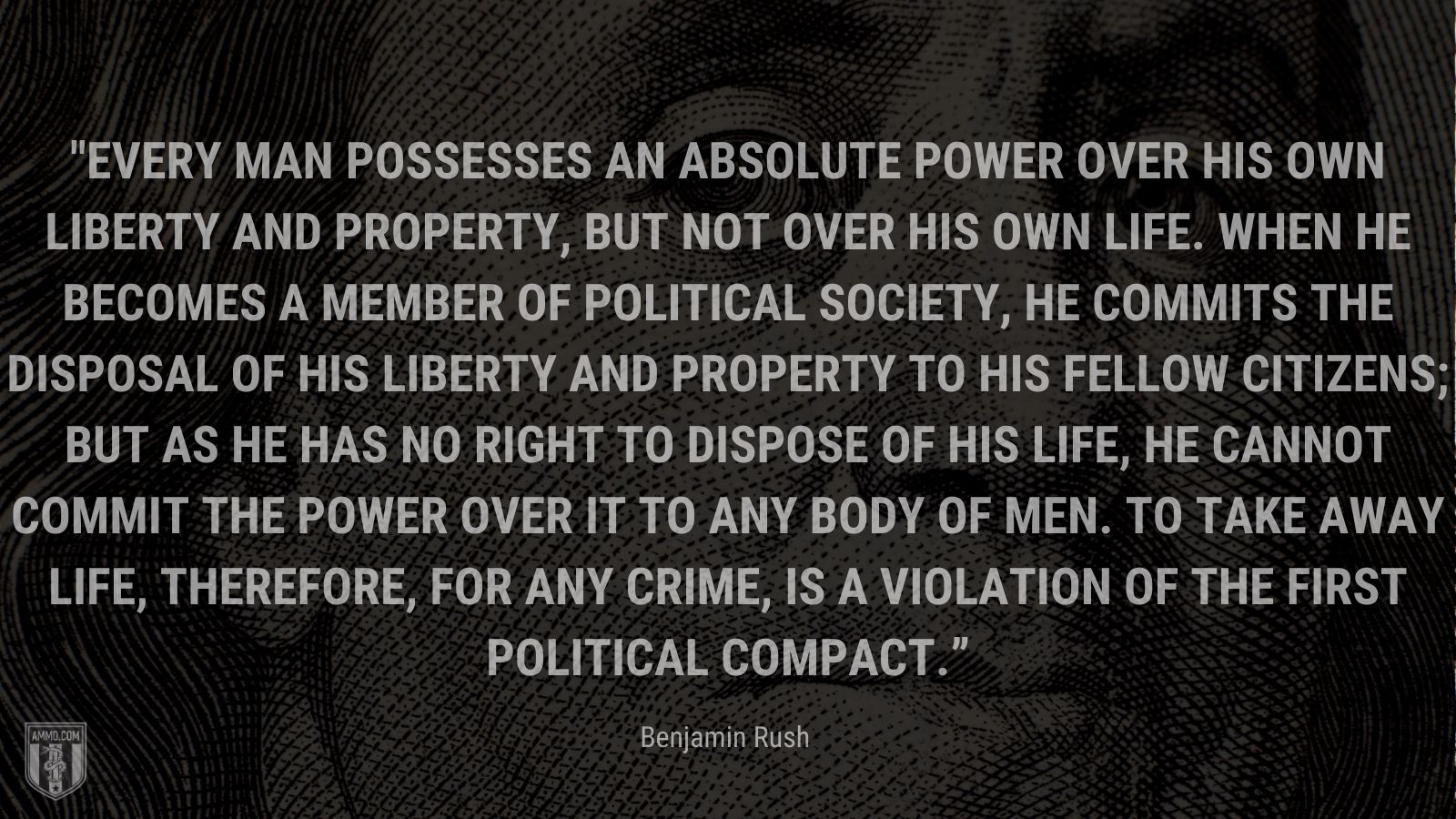
“Every man possesses an absolute power over his own liberty and property, but not over his own life. When he becomes a member of political society, he commits the disposal of his liberty and property to his fellow citizens; but as he has no right to dispose of his life, he cannot commit the power over it to any body of men. To take away life, therefore, for any crime, is a violation of the first political compact.”
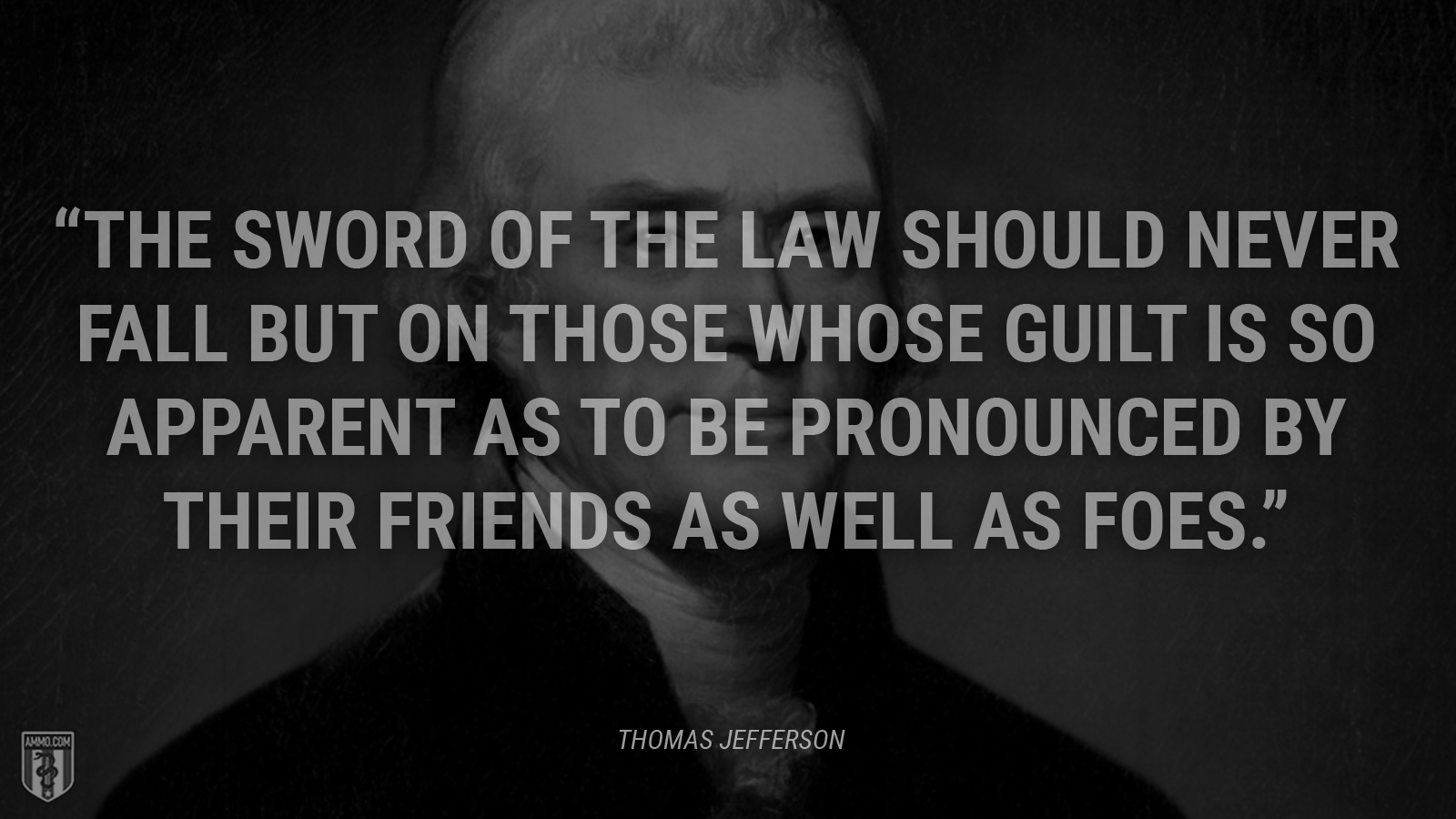
“The sword of the law should never fall but on those whose guilt is so apparent as to be pronounced by their friends as well as foes.”
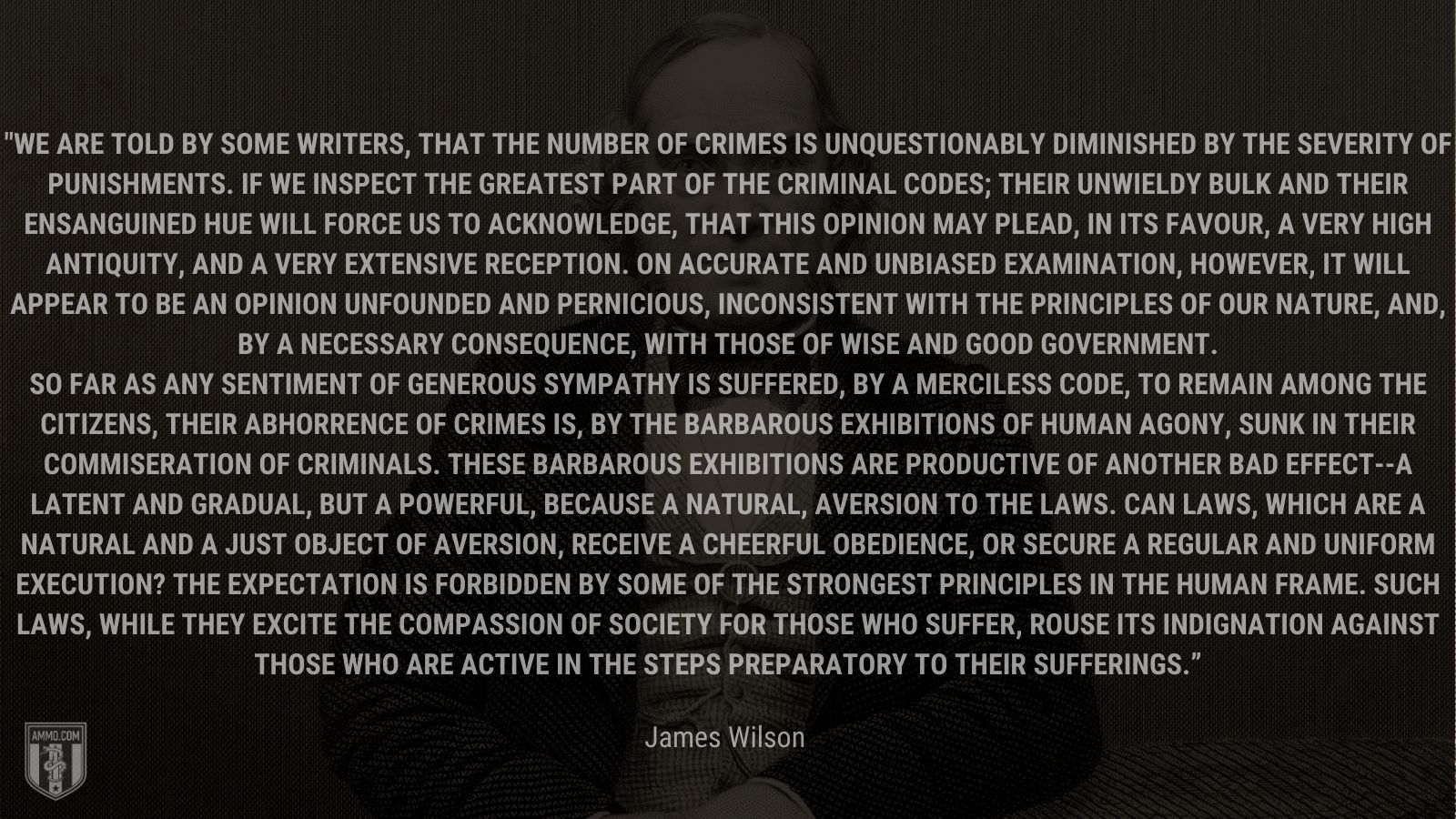
“We are told by some writers, that the number of crimes is unquestionably diminished by the severity of punishments. If we inspect the greatest part of the criminal codes; their unwieldy bulk and their ensanguined hue will force us to acknowledge, that this opinion may plead, in its favour, a very high antiquity, and a very extensive reception. On accurate and unbiased examination, however, it will appear to be an opinion unfounded and pernicious, inconsistent with the principles of our nature, and, by a necessary consequence, with those of wise and good government.
So far as any sentiment of generous sympathy is suffered, by a merciless code, to remain among the citizens, their abhorrence of crimes is, by the barbarous exhibitions of human agony, sunk in their commiseration of criminals. These barbarous exhibitions are productive of another bad effect--a latent and gradual, but a powerful, because a natural, aversion to the laws. Can laws, which are a natural and a just object of aversion, receive a cheerful obedience, or secure a regular and uniform execution? The expectation is forbidden by some of the strongest principles in the human frame. Such laws, while they excite the compassion of society for those who suffer, rouse its indignation against those who are active in the steps preparatory to their sufferings.”
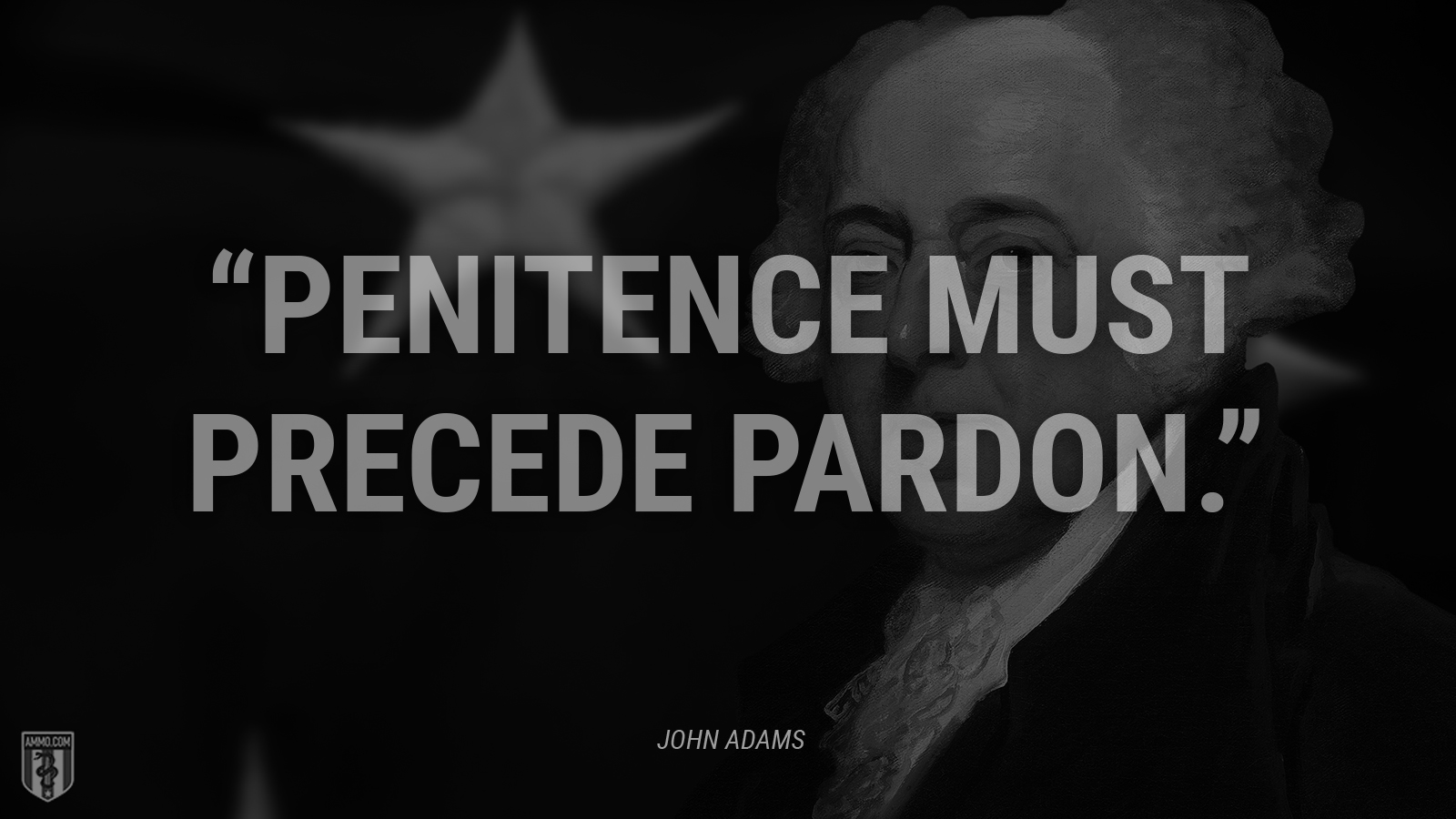
“Penitence must precede pardon.”
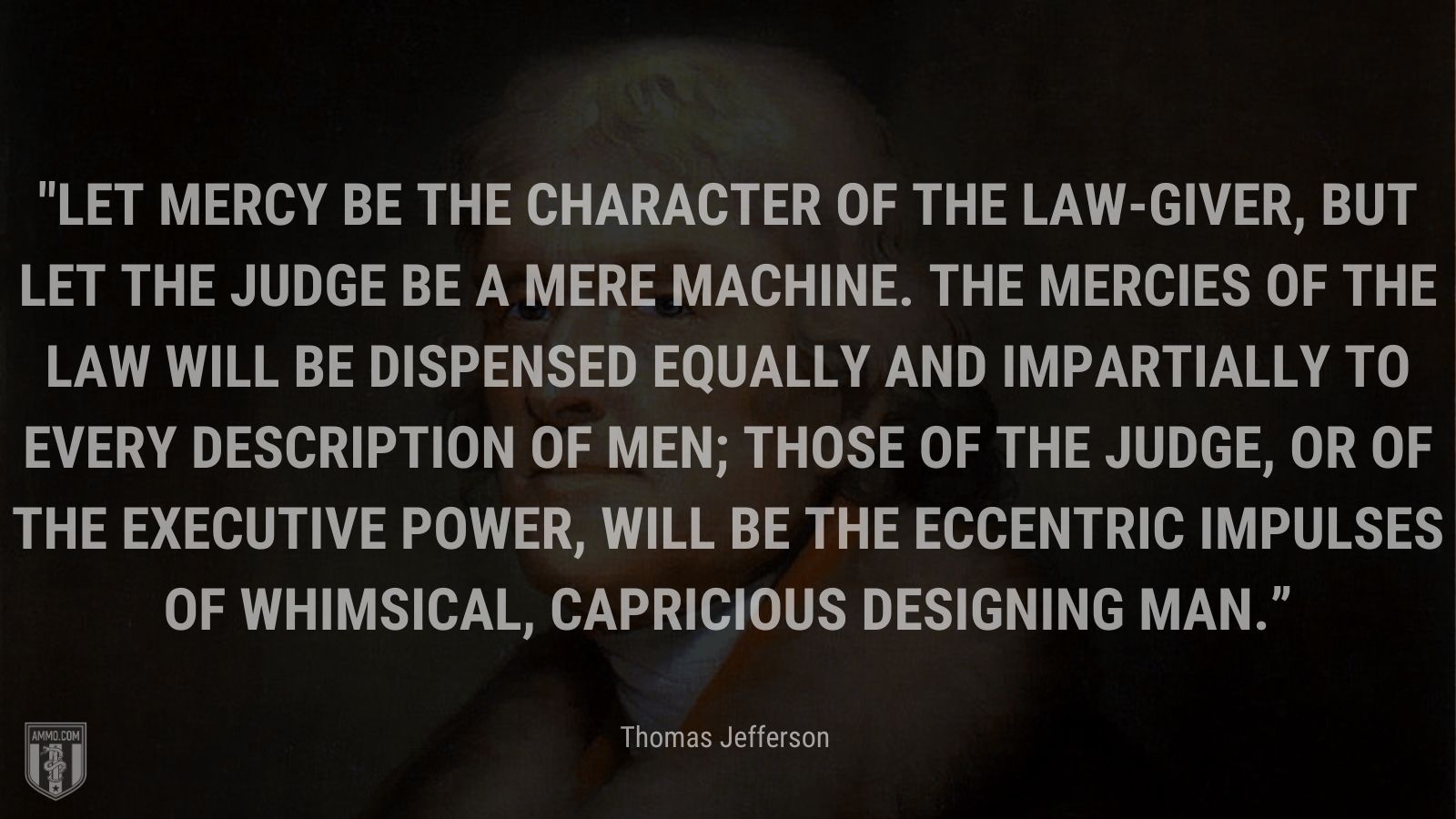
“Let mercy be the character of the law-giver, but let the judge be a mere machine. The mercies of the law will be dispensed equally and impartially to every description of men; those of the judge, or of the executive power, will be the eccentric impulses of whimsical, capricious designing man.”
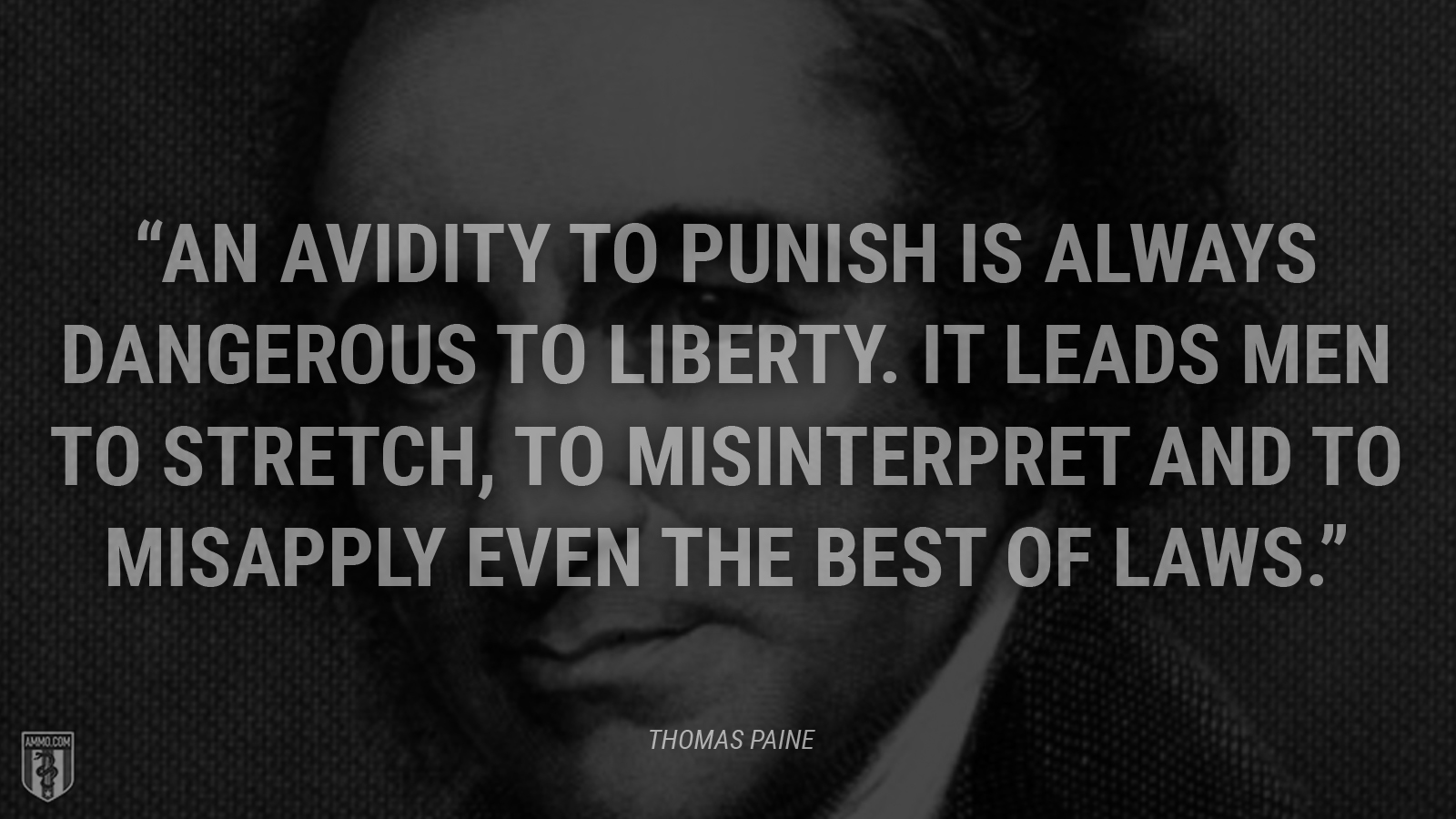
“An avidity to punish is always dangerous to liberty. It leads men to stretch, to misinterpret and to misapply even the best of laws.”
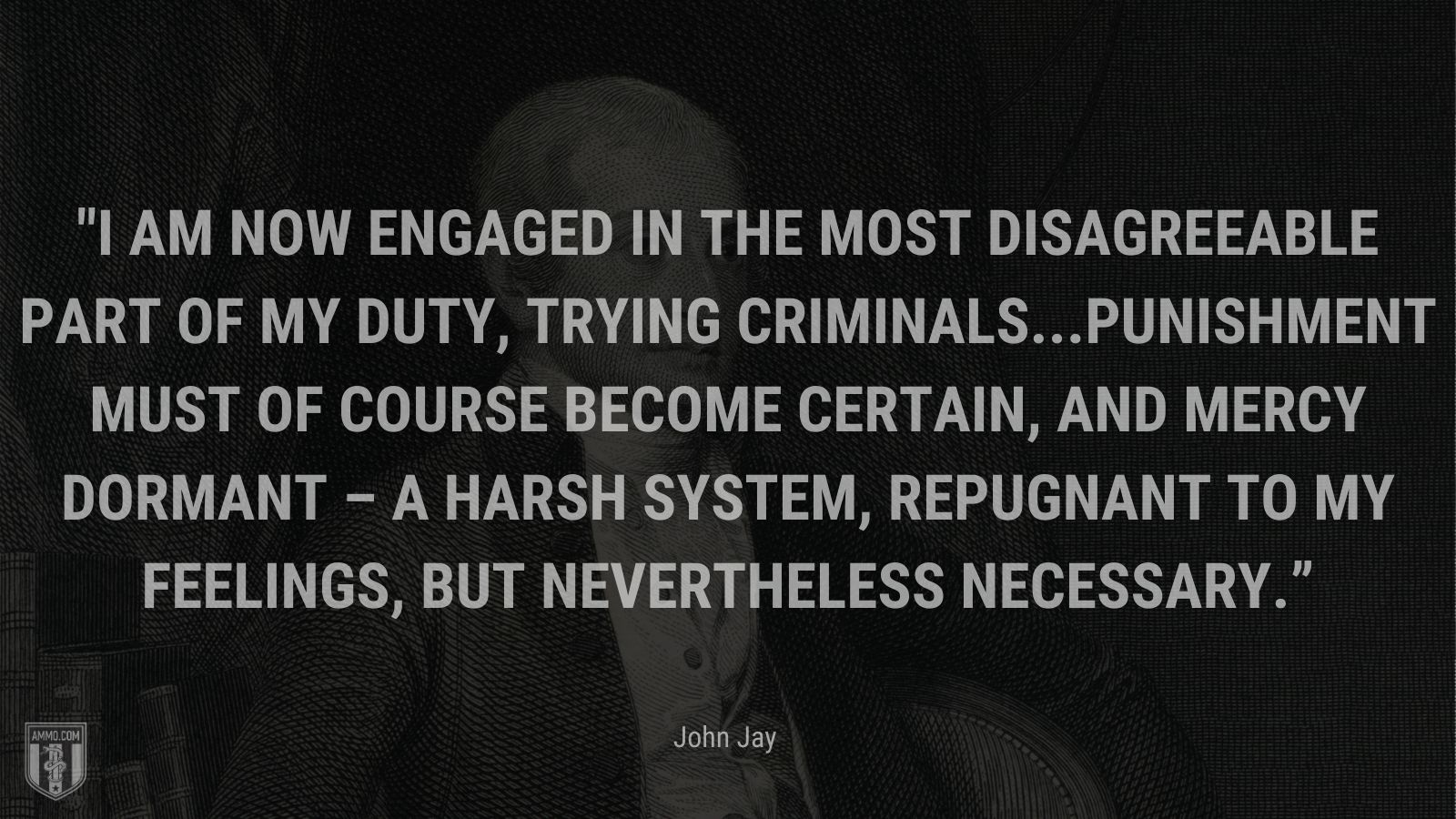
“I am now engaged in the most disagreeable part of my duty, trying criminals...Punishment must of course become certain, and mercy dormant – a harsh system, repugnant to my feelings, but nevertheless necessary.”
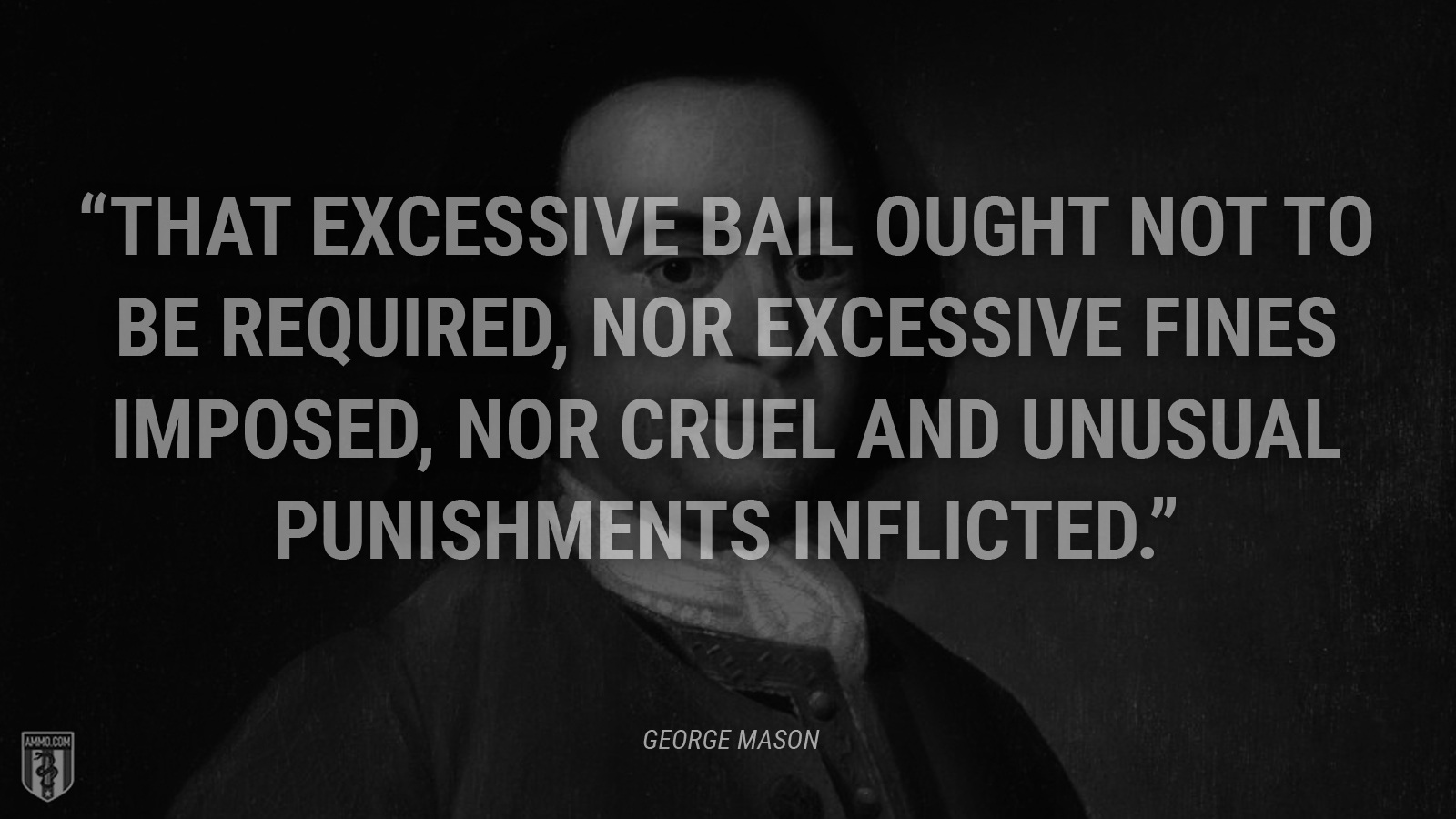
“That excessive bail ought not to be required, nor excessive fines imposed, nor cruel and unusual punishments inflicted.”
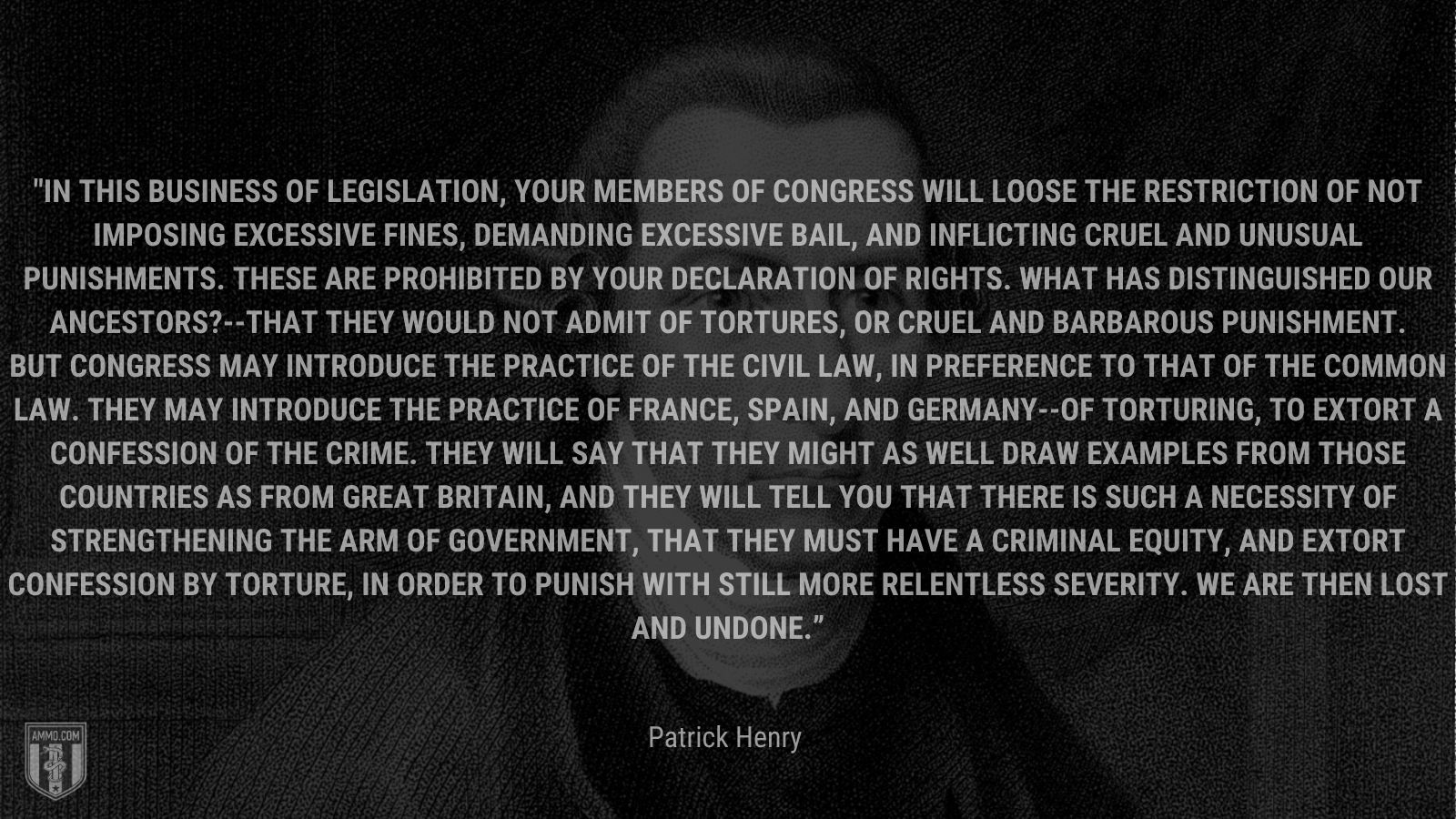
“In this business of legislation, your members of Congress will loose the restriction of not imposing excessive fines, demanding excessive bail, and inflicting cruel and unusual punishments. These are prohibited by your declaration of rights. What has distinguished our ancestors?--That they would not admit of tortures, or cruel and barbarous punishment.
But Congress may introduce the practice of the civil law, in preference to that of the common law. They may introduce the practice of France, Spain, and Germany--of torturing, to extort a confession of the crime. They will say that they might as well draw examples from those countries as from Great Britain, and they will tell you that there is such a necessity of strengthening the arm of government, that they must have a criminal equity, and extort confession by torture, in order to punish with still more relentless severity. We are then lost and undone.”
Quotes: Founding Fathers
- Founding Fathers Quotes: Our Favorite Quotes from America's Courageous Revolutionaries
- Founding Fathers Quotes on Religious Freedom and the Separation Between Church & State
- Founding Fathers Quotes on Freedom of Speech and Freedom of Press in the First Amendment
- Founding Fathers Quotes on Guns and the Second Amendment's Right to Keep & Bear Arms
- Founding Fathers Quotes on Standing Armies and Quartering Troops in the Third Amendment
- Founding Fathers Quotes on Privacy, Search, and Seizures in the Fourth Amendment
- Founding Fathers Quotes on Due Process and Eminent Domain in the Fifth Amendment
- Founding Fathers Quotes on Criminal Justice and the Right to Counsel in the Sixth Amendment
- Founding Fathers Quotes on Civil Lawsuits and Common Law in the Seventh Amendment
- Founding Fathers Quotes on Excessive, Cruel or Unusual Punishment in the Eighth Amendment
- Founding Fathers Quotes on the Dangers of Centralized Power in the Ninth and Tenth Amendments
- Founding Fathers Quotes on the Importance of Physical Health and Exercise
- Founding Fathers Quotes on How Central Banking is Destructive to America's Economic System
- Founding Fathers Quotes on the Importance of Wisdom and Education in a Free Society
- Founding Fathers Quotes on the Limited Executive Powers of the United States Presidency
- Founding Fathers Quotes on Why America's Revolutionaries Fought For Liberty and Freedom
- Founding Fathers Quotes on Justice For All and Equal Treatment Under the Law
- Founding Fathers Quotes on Hope for Peace, Hesitation for War & Restrictions for Military
- Founding Fathers Quotes on Family, Friends, and Seeking Wisdom Through Relationships
- Founding Fathers Quotes on Politics, Patriotism, and the Importance of Putting America First
- Founding Fathers Quotes on the American Revolution and the Fighting Spirit for Independence
- Founding Fathers Quotes on Government, Democracy, and Placing Power in the People
- Founding Fathers Quotes on the Founding of the Nation and the United States Constitution
